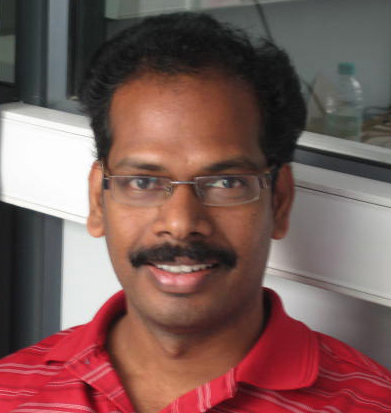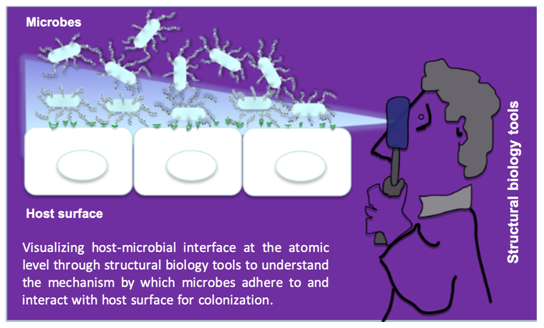
Professor
E-mail: kvengadesan at rcb dot res dot in
Structural biology of host-microbe interactions in health and disease, bacterial pili and biofilm
Microbial attachment to host surfaces is a first and critical step in colonization regardless of whether it benefits or harms the host. The subsequent events in the pathogenesis or probiosis are highly dependent on this initial interaction or adherence. Interfering with the host-microbial interface is considered as one of the attractive and efficient approaches in improving health and combating infections.This approach do not directly kill bacteria rather prevent interaction or attachment. Hence, it is also recognized as a promising alternate to antibiotics which often results in development of resistance. Such an approach requires detailed knowledge of how microbes attach to host, and how the adhesive strategies differ among microbes.Towards providing the essential foundations for this approach, we aim to generate structural knowledge by studying key molecules that establish the initial contacts between the host and microbes (both beneficial and pathogenic).
Our major interest lies in visualizing host-microbial interface through structural biology tools at the atomic level towards understanding the mechanism by which microbes adhere to and interact with the host surface for colonization. We currently focus on hair-like surface organelles called pili or fimbriae that enable bacteria to establish the initial contacts with the host surfaces for colonization and biofilm formation.The ongoing structural investigation programme covers beneficial strains from gut microbiota and pathogens for getting insights into tissue tropism and microbial interaction strategies in health and diseases.

Dr. K Vengadesan
Professor
Regional Centre for Biotechnology
NCR Biotech Science Cluster
3rd Milestone, Faridabad-Gurgaon Expressway
P.O. Box No. 3, Faridabad - 121 001
Haryana (NCR Delhi), India
E-mail: kvengadesan at rcb dot res dot in
Phone: 91 129-2848825